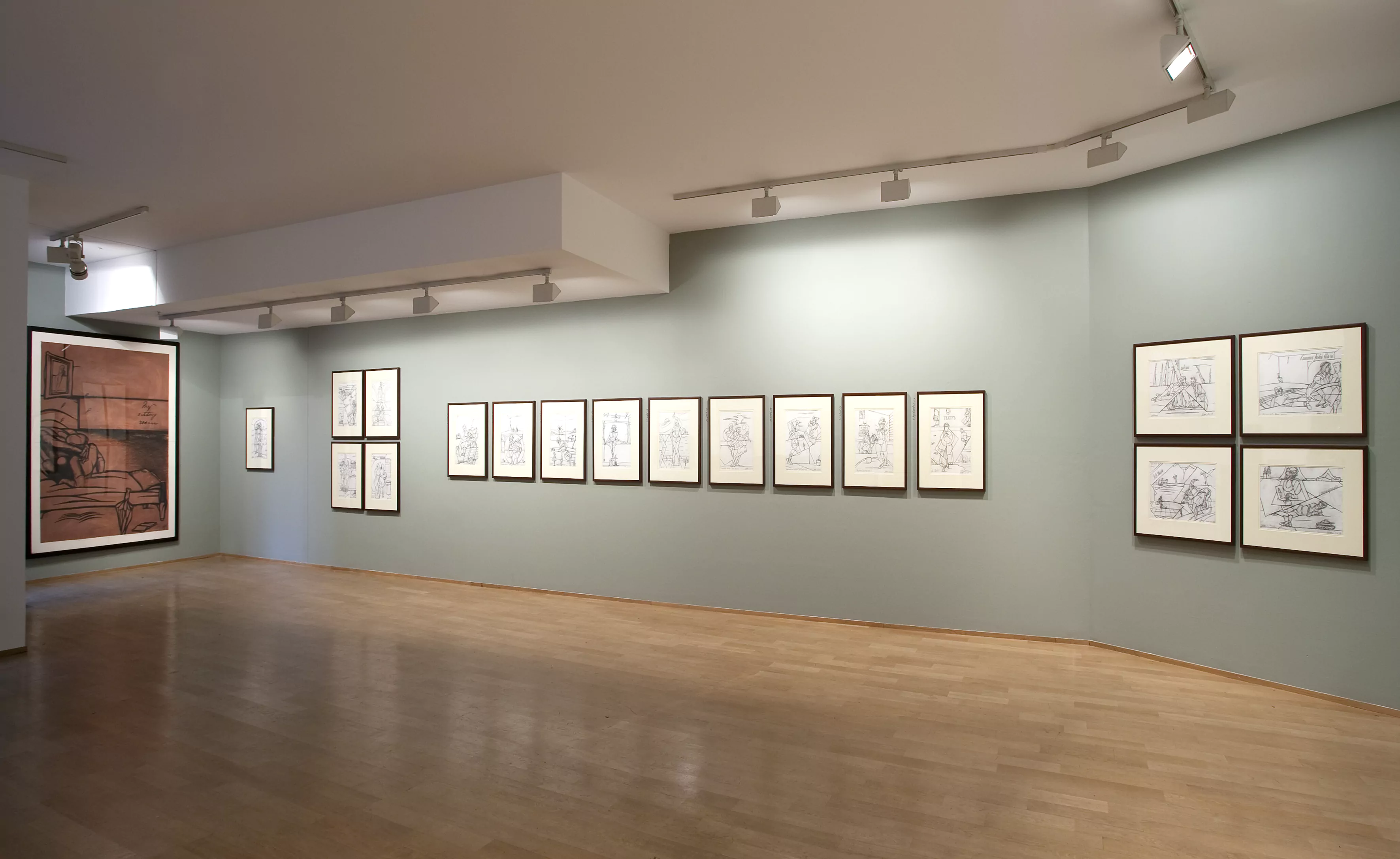
Valerio Adami
Dessins
Famed for his acid-toned paintings, Valerio Adami has chosen Impasse Beaubourg for the first exhibition of his drawing show, based on a completely new concept: every preparatory sketch he has made over the past three years. These forty-odd drawings combine to create what is, in effect, a drawn diary in which the artist’s obsessional themes – travel, music, literature – are revealed in all their complexity.
Drawings are fundamental to Valerio Adami’s work; created over several days, they form the matrix for every one of his paintings. The paper retains the traces of his revisions, the succession of sketches. Adami feels that the drawings are witness to, and the memory of, his paintings.
As he puts it: “the essence of my self is found in the drawings. The painter’s aim is to add shape and volume to the drawing. But even where the drawings are abstract, their syntax must remain perfectly concrete.”
For Adami, lines and closed shapes are closely tied to word and language. A friend of both Italo Calvino and Jacques Derrida, Valerio Adami conceives his paintings as philosophical interrogations of the verb. He says that: “entire days spent on the drawings, erasing their every mundane trace. (Measuring up to Utopia is one way of knowing the truth.) All these drawings are but the seasonal fruits of the tree that we are, etc. Drawings without shadows and without anguish, where light and darkness lie together within the line. There are tiny keys in the closed form, that move the whole.”
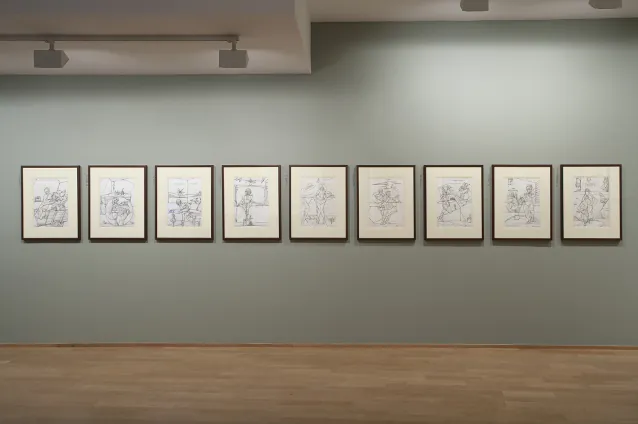
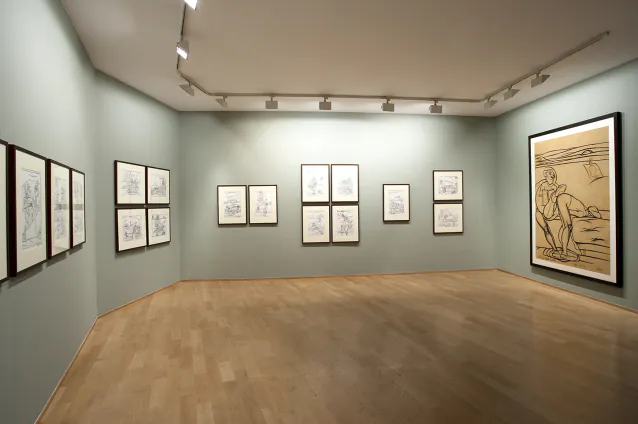
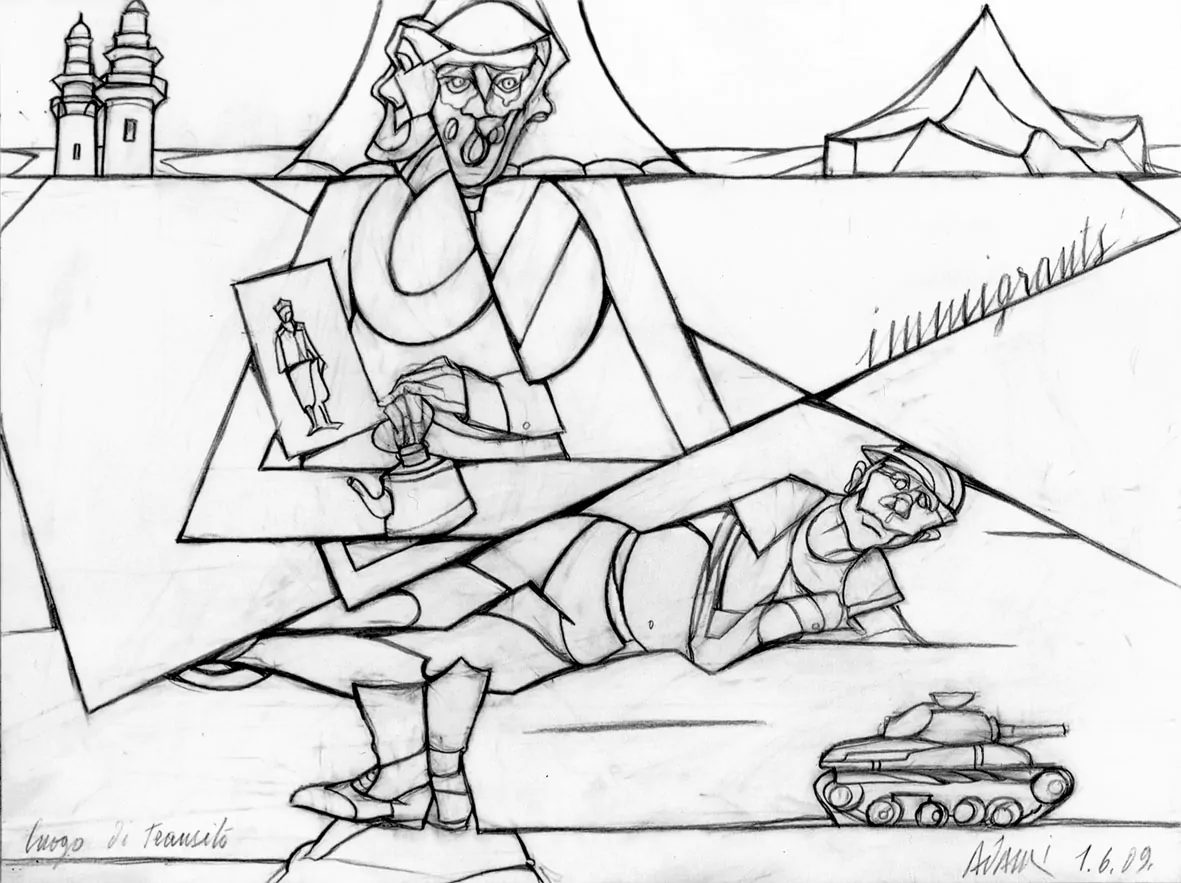
The artist
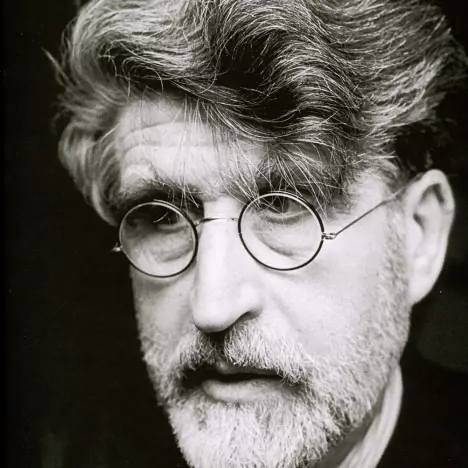
Born in 1935 in Bologna, Valerio Adami is a leading figure in the Narrative Figuration movement. His acrylic paintings are characterised by blocks of colour outlined in black evoking the themes of travel, music, literature and theatre. The notion of mystery is expressed in the many literary references that populate the paintings, a notion that always plays a central role in his work, which he defines as a philosophical questioning.
